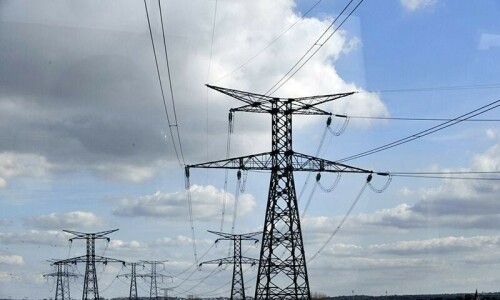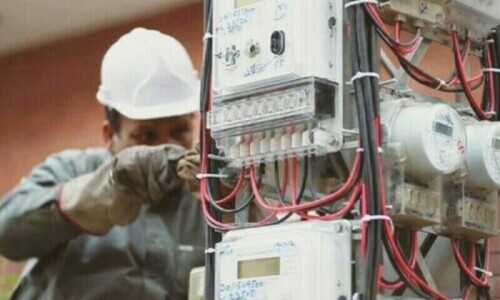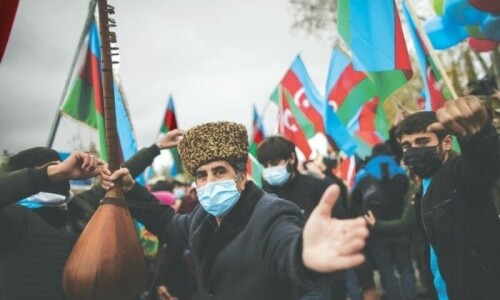KARACHI: Trade and industry leaders frustrated by the high capacity payments to independent power producers (IPPs) have asked the government to review the power purchase agreements and demanded a reduced electricity tariff of 9 cents per unit for industry survival.
Korangi Association of Trade and Industry (Kati) President Johar Ali Qandhari and other office-bearers and former presidents told a press conference at the Kati office on Saturday that “the IPPs are receiving more money than the nation’s defence budget. The interests of the 240 million people of Pakistan should take precedence over the interests of the 40 families running these IPPs.”
The Kati chief asked the government to cancel contracts with unnecessary private companies and a forensic audit of the IPPs’ financials. “Do we prioritise the interests of 40 IPP-running families, or do we care more for the 240m citizens?” he questioned.
While the total production capacity of electricity installed is 45,000 megawatts, only 22,000MW are being utilised. The cost of a unit of electricity for industrial consumers, without tax, is Rs35, which rises to Rs60 after tax. Out of the Rs35, he said approximately Rs18 per unit is paid in capacity charges for electricity not even used, pushing the economy towards destruction.
Says power plants run by 40 families get more money than defence budget
Mr Qandhari said that Rs2,000bn would be paid in capacity charges, putting severe pressure on the economy. He proposed changes to the capacity conditions of government-owned IPPs, which account for 45pc of the market, including reducing management costs and shifting from the London Interbank Offered Rate (Libor) to the Karachi Interbank Offered Rate (Kibor) for payments. He also suggested renegotiating contracts with the privately owned IPPs, which make up 25pc of the market, to shift from “Take or Pay” to “Take and Pay” agreements.
The Kati chief advocated for establishing an electricity market in Pakistan, suggesting that the government step back from electricity production and purchase and entrust these to private companies to foster competition. “Consumers should have the option to choose their electricity provider, allowing them to select companies offering better terms and cheaper rates,” he said, urging the government to halt new IPP projects and improve capacity through negotiations with existing IPPs.
Federal Minister for Energy Sardar Awais Laghari has been asked to examine the IPP contracts that made these agreements public besides carrying out their financial audits by international companies.
FB Area Association of Trade and Industry (FBATI) President Syed Raza Hussain urged the government to take decisive action and terminate or renegotiate the agreements with these power producers to regulate tariffs in a fair and sustainable manner for both consumers and businesses.
“IPPs are jeopardising the future of our country as high power tariffs due to these IPPs are rendering closure of industries and causing immense suffering to the people,” he said.
United Business Group (UBG), Sindh Zone, Chairman Khalid Tawab appealed to the government to revisit the agreements with IPPs, reduce electricity tariffs, and help industries and exporters survive.
He said the revised tax collection target of Rs12.9 trillion is impossible to achieve under the present economic situation, while the export target of $100bn by 2030 is also next to impossible due to the high power tariff.
Published in Dawn, July 21st, 2024













































